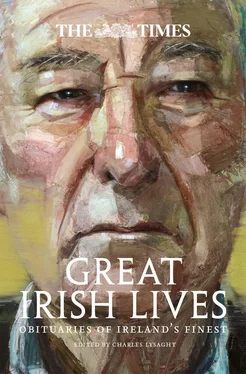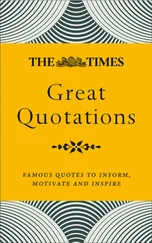1 ...7 8 9 11 12 13 ...21 In 1803 Moore had the misfortune to obtain worldly advancement. He was promoted to an official situation in Bermuda. The duties of the office were performed by a deputy, and the consequence, was great personal anxiety and heavy pecuniary loss to the poetical principal …
Moore’s birth and origin made him a Liberal and something more. He came into the world one of a then oppressed race. He was the contemporary and schoolfellow of an ardent band who believed all things lawful to the struggler for liberty, and his spirit went with them in their most daring aspirations. The hapless victims of their own rash, ill conceived, and unwarrantable projects for national emancipation were his chosen and beloved associates, and when he saw them sacrificed to their wild enthusiasm he cherished the passion that had consumed them and embalmed their memory in matchless melody and verse. In middle life Moore, favoured by the friendship of the great Whig chiefs, soothed by the concessions that had been made to his country and his creed, and warned by sober experience of the vanity of egregious expectation, settled down into a constitutional Whig; but at the starting point of his career he had as little affection for Whigs as for Tories. In the preface to one of a series of solemn satires, he speaks of both “factions” as “having been equally cruel to Ireland, and perhaps equally insincere in their efforts for the liberties of England.”
Moore had no cause to remember with pleasure either the prose or the poetry of these satirical exercises. Serious satire was at no time his forte – his lively and delicate hand could hardly wield the heavy weaponry of Dryden and Pope. Greater success attended his efforts when at a later period of his life he divested himself of his sombre attire, and became as joyous in hate as he had been in love. The Fudge Family , written in 1817, The Twopenny Postbag , and similar productions full of point, wit, and polish, are unrivalled as political lampoons, and preserve to this hour, their first exquisite relish. The generous fancy of the Irish poet could not be happy steeped in bitterness, and to affect sternness was to languish and die. The objects of Moore’s squib warfare were no doubt sufficiently conscious of the sharpness of an airy weapon, never otherwise than most dexterously handled by their foe; but we question whether they suffered half as much pain as they enjoyed pleasure from his lively feats. How could men be seriously angry with an adversary who simply tickled when he pretended to strike?
The apprenticeship of Moore was served when he commenced The Irish Melodies which have rendered his name famous wherever music is cherished. From that hour his genius triumphed, and most deservedly. Moore attributes all his poetical success to his strong and inborn feeling for music. There can be no doubt that his obligations to nature in this respect were very great. Music and poetry were wedded in his heart, and were inseparable. So intimately, indeed, were they united, that the sight of The Irish Melodies crowded together in one volume, unaccompanied by the notes with which they were always associated in his own mind, inflicted upon him positive pain. It was as if he saw the skeletons of his children ranged before him, deprived of the warm flesh and breathing form. To the reader the verses have beauty of their own, and charm irrespective of the strains by which they were suggested. Moore could no more unbind melody and language than he could gaze on female beauty and separate the notions of body and soul.
The publication of The Irish Melodies commenced in 1807, and, continued at intervals, was concluded in 1834. They have been translated into Latin, Italian, French, and Russian, and are familiar as proverbs amongst the fellow-countrymen of the poet, and indeed wherever English is understood and music loved. It is difficult for the critic to refer to them in too high a tone of panegyric. It may be true that force and dignity are wanting to some of those lyrics, that occasionally fancy labours until art becomes too evident in strained and frigid similes, that ornament at times overlays sentiment until nature pants beneath the glittering encumbrance; but it is equally certain that universal literature does not present a lovelier and more affecting tribute to a nation’s minstrelsy than is found in The Irish Melodies of Thomas Moore. The love of country that pervades and inspires his theme, his simple tenderness of feeling, that at once strikes the heart as instantly to melt it, his facility of creation, linked vith the glad appreciation of all that is beautiful in nature – the grace, the elegance, the sensibility, the ingenuity, that are never absent – the astonishing and thoroughly successful adaptation of sense to sound, of sweetest poetry to thrilling music, – are claims to admiration which the most prosaic of his species will find it impossible to resist or gainsay.
The year 1812 found Moore, in his 32nd year, enjoying well-earned fame, but on circumscribed ground. He had not as yet given to the world a long and continuous work, and shown how well he could sustain the brilliancy that seemed too keenly elaborate for a protracted effort. In that year, however, the poet resolved to take the field against his most favoured competitors, and to attempt a poem upon an Oriental subject. In 1817 Lalla Rookh appeared … The poem was hailed with a burst of admiration from sceptics as well as believers.
And no wonder! It was a triple triumph of industry, learning, and genius. The broad canvas exhibited a gorgeous painting; from beginning to end the same lavish ornament, the same overpowering sweetness, the same variegated and delicate tracery, the same revelling of a spirit happy in its intense enjoyment of beauty that characterized the miniatures and gems that heretofore had proceeded from the artist’s pencil. So far from betraying a diminution of power, or an inability to maintain his high-pitched note, the poet pursued his strain until he fairly left his reader languishing with a surfeit of luscious song, and faint from its oppressive odours. We peruse the romance, and marvel at the miraculous facility of a writer who has but to open his lips to drop emeralds and pearls, like the good princess in the fairy tale. Nor does astonishment cease when we learn, that eager and all but involuntary as the verse appears to issue from its source, the apparently effortless composition is actually a labour performed with all the diligence of the mechanic and all the forethought of science. In his life of Sheridan, Moore informs us that many of the impromptu jokes of Richard Brinsley owed much of their point and off-hand brilliancy to the time and pains previously bestowed upon their manufacture. His own seemingly spontaneous and easy cadences were wrought most patiently at the anvil. But the time spent in the composition of Lalla Rookh , though it extended over years, was as nothing compared with the time given to preparation for the subject. For months Moore saturated his mind with Oriental reading, in order to familiarize himself with Oriental illustration, and with the view especially of educating his fancy for its essential and peculiar work. The research and industry of the poet were immense. He tells us himself that “it was amidst the snows of two or three Derbyshire winters, in a lone cottage amongst the fields, that he found himself enabled by that concentration of thought, which retirement alone gives, to call up around him some of the sunniest of his eastern scenes.” He had devoured every book he could get relating to the East, and did not rise from his occupation until he positively knew more of Persia than of his own country, and until his acclimated genius found it as easy to draw inspiration from the influences of a land he had never seen as from the living and silent forms by which, in his own country, he had been from his childhood surrounded. Eastern travellers and Oriental scholars have borne testimony to the singular accuracy of Moore’s descriptive pen … The poem, translated into Persian, has found its way to Ispalian, and is thoroughly appreciated on the shores of the Caspian. In London the poem looks like an exotic; there it is racy of the soil.
Читать дальше












